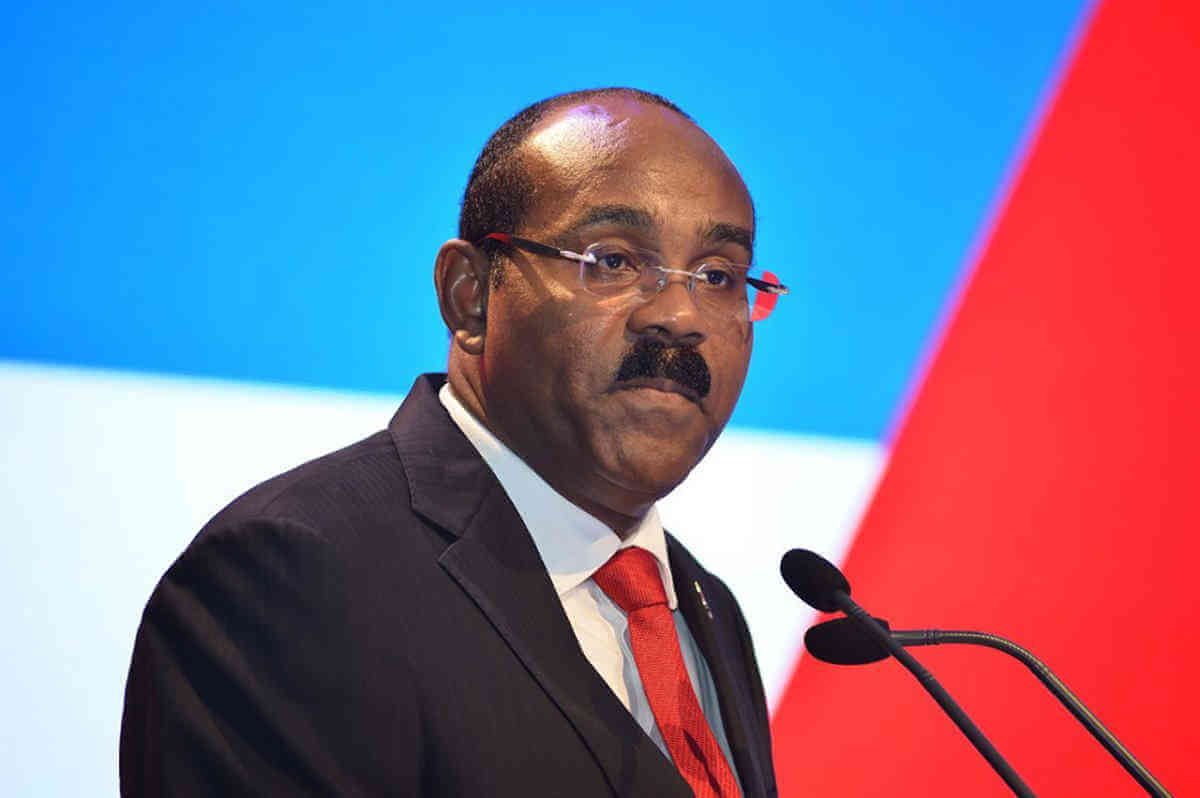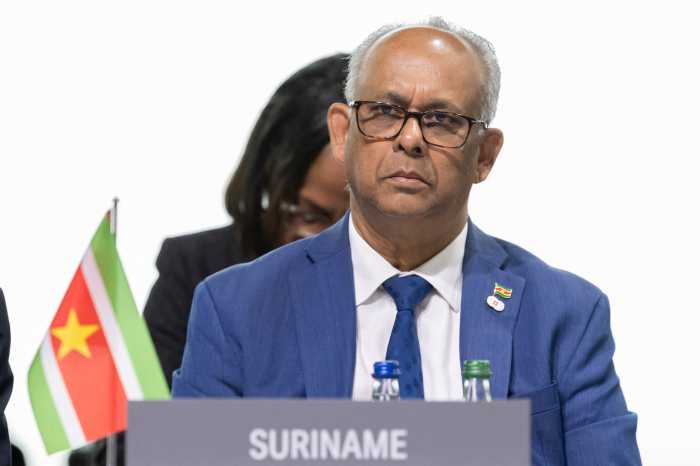ANTIGUA
Prime Minister Gaston Browne recently unveiled an eight-member Cabinet that was sworn into office following the recent general election that resulted in his ruling Antigua and Barbuda Labour Party (ABLP) being returned to office for a third consecutive occasion but with a drastically reduced majority.
“I am not a fan of bringing individuals through the Senate to serve as ministers. I believe it is important to pay attention to the quality of the candidates who the people elect and who could also serve as ministers,” Browne told reporters at the swearing- in ceremony.
The ABLP won the general election by a 9-8 margin, down from the comfortable 15-2 majority it had enjoyed in the last Parliament.
Apart from the main opposition United Progressive Party (UPP) winning six seats — five more than it previously had, another successful candidate was Asot Michael, a former government minister who fell out with Browne and was prevented from contesting the St Peter constituency on a ticket of the ruling party. Michael, who had been the parliamentary representative for the area over the past four elections, won the seat as an independent candidate.
BARBADOS
The Barbados economy is forecast to continue on its growth trajectory this year, even though the global economy is expected to slow in 2023, the Central Bank of Barbados (CBB) reported recently.
In its review of the local economy for 2022, the Central Bank Governor, Cleviston Haynes, told a news conference the economy is predicted to expand in the range of four to five percent and that the CBB anticipates the resurgence of the tourism sector will not be as rapid as in 2022.
” The momentum for a sustained economic recovery requires increased public and private sector investment. Such investments, including in tourism and the physical infrastructure, have the potential to enhance the economy’s productive capacity, modernize the economy, absorb labor and create positive spill-over effects for small and medium-sized businesses.
CARIBBEAN
The Caribbean Public Health Agency (CARPHA) is urging regional countries that arboviral diseases such as dengue, chikungunya and Zika are still circulating in the Caribbean.
In a statement, CARPHA said it wanted to emphasize the importance of prevention and control measures to reduce the transmission of these viruses, and that the agency remains committed to strengthening public health systems for early detection and response to the emergence, re-emergence and spread of arboviral infections.
“The CARPHA Medical Microbiology Laboratory (CMML) has the capacity and remains ready to test and provide diagnostic confirmation of suspected cases in the region,” said CARPHA’s Executive Director, Dr. Joy St. John.
CARPHA said given the increase in regional and international travel to the Caribbean and the presence of the Aedes aegypti mosquitoes, which are endemic to this region and transmit dengue, chikungunya and Zika, it is urging member states to strengthen routine surveillance for undifferentiated fever in their communities.
GRENADA
Grenada’s Prime Minister Dickon Mitchell has defended the decision to amend the Excise Act that will result in an increase jn alcoholic and tobacco products, saying the measure is aimed at raisng revenue for the government lost because of relief measures announced in the 2023 budget statement.
Mitchell had told legislators the government could lose an estimated EC$30 million as result of the cost of living relief measures offered to citizens.
“Given the significant potential loss of revenue by the fiscal measures implemented by this Government, this is just one of the many counteracting measures that the government has taken from our fiscal policy to address this,” Prime Minister Mitchell told the Lower House of Parliament recently.
“The motion in relation to the Excise Tax Act is being moved to support the government’s indication as per budget presentation and the passing of the Appropriation Act for 2023 as it relates to alcohol and cigarettes and to assist the government in paying for many fiscal measures that will be implemented in 2023 to address the cost of living issues that are faced by our citizens,” he added.
Mitchell, who is also the minister for finance, made reference to some of the areas where the government will have reduced revenue.
He said these include reducing the petrol tax from EC$5.50 to EC$3.50 and removing certain items from the value added tax (VAT) list such as cooking oil, kidney bean, condoms, sanitary pads, split peas, adult diapers, toothpaste, toilet paper and bathing soap.
HAITI
One of Haiti’s gangs recently stormed a key part of the capital, Port-au-Prince, and battled with the police throughout the day, leaving at least three officers dead.
The recent violence was the latest episode of lawlessness that has torn through the Caribbean nation.
A police patrol was ambushed by gang members, Lionel Lizarre, head of the National Union for Haitian Police said. The officers called for backup but were angered because reinforcements never arrived, he said.
At least three officers died in the violence, one was missing and one was treated at a hospital for bullet wounds, police confirmed.
Fighting continued throughout the day and tensions remained high.
The United Nations estimates 60 percent of Haiti’s capitals is controlled by gangs, but many residents say gang warfare has expanded past the fringes and into most of the city.
JAMAICA
Jamaica moving to increase mandatory minimum sentences for murder from 15 to 45 years.
Minister of Justice, Delroy Chuck, in a statement to parliament said, “In section 3(1C) regarding eligibility for parole for capital murder, 3(1C)(a), increase the mandatory minimum sentence to be served before being eligible for parole from 20 years to 50 years.”
He said for non-capital murder, where the sentence given was life imprisonment, there will be an increase in the mandatory minimum sentence to be served before being eligible for parole from 15 to 40 years.
— Compiled by Azad Ali


























